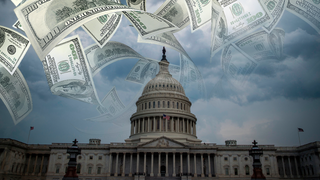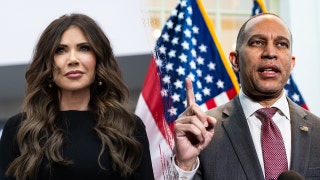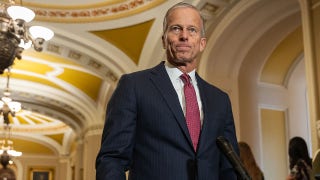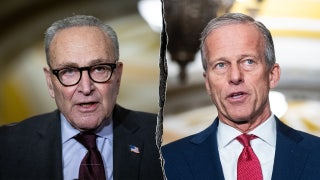WASHINGTON -- When President Obama addresses a joint session of Congress next Wednesday to push for health care reform, the speech will come nearly 16 years after President Bill Clinton delivered his own address to Congress on the very same topic.
Clinton's push for health care reform ultimately failed, but in the short term, his speech in September 1993 succeeded: Afterward, polling showed the country somewhat open to Clinton's call for mandatory insurance coverage purchased and supplied through tightly regulated Health Maintenance Organizations.
Obama's speech, however, will occur after a summer of discontent driven by raucous town hall events, resulting in deepening public opposition to Obama's health care plans and newfound skepticism about his ability to lead.
The last thing this year's debate needs is another Obama speech, said Doug Schoen, who took over polling for Clinton after the GOP landslide of 1994 that propelled Republicans to leadership of the House and Senate for the first time in 40 years.
"I think he's out of touch with what he needs to do," Schoen said. "I don't think he needs another speech. I don't think it's a question of oration. I think it's a question of the bill, the agreement, showing presidential leadership in getting the Democrats and Republicans in Congress, and their leadership, to the White House to hammer out an agreement that works in the interest of the American people."
Clinton's address, on Sept. 22, 1993, sought to galvanize a Congress led by Democrats behind a 1,000-page bill that his White House health care task force, led by then-first lady Hillary Clinton, produced to deal with rising health care costs and 37 million uninsured residents.
The circumstances of Obama's address are similar -- but with a big difference: Clinton's speech came at the beginning of the process.
The legislation Clinton's White House authored didn't arrive on Capitol Hill until Nov. 20, about two months after his speech. Obama will speak after three House committees and one Senate committee already have produced bills to their liking -- bills Obama has generally praised.
White House officials say Obama will be more specific about what he wants. But, they caution, he won't be too specific. They cannot say, for example, if Obama will rule out the government-funded entry into private insurance known as the "public option."
But when they discuss the public option, White House aides sound less than enthused.
"The president thinks it's the best way to achieve his ultimate goal, choice and competition, but certainly not the only way to get there," one adviser said.
Some Democrats already assume it's gone.
"This debate is focusing on a very minute sliver of the overall reform picture," said Anne Kim of Third Way, a think tank that says it represents the "moderate wing of the progressive movement."
"Treating it (the public option) as if it is everything has really, really skewed the public perception of what health reform is all about," she said. "Substantial reform can be done with or without a public option. It's the garnish that's on top. It's the means, but not the ends."
Kim also predicted a realignment among liberals around a health care bill that doesn't include the public option, all in the name of pragmatism.
"You're going to see a lot of movement, I think, in the progressive caucus toward a more pragmatic position, particularly in the next four to six weeks," Kim said.
That movement hasn't happened yet.
In San Francisco, House Speaker Nancy Pelosi on Wednesday told reporters: "In all three of our committees, we have come up with a public option. And so, we will have a public option in the bill. Let me say it another way: We can't pass a bill without a public option -- unless someone comes up with a better idea, which we haven't heard yet."
It isn't clear yet what that idea might be, but White House advisers hope it is found and agreed upon before the House votes a bill off the floor sometime in October.
When asked if the House would approve a public option but give up on it in an eventual compromise with the Senate, where the public option lives in name only, a White House adviser advised caution.
"I'm not sure that would be the way to go because once that vote goes up, it's much harder to walk that back," the adviser said.
The White House knows if House bill contains a public option, liberals who fought for it won't give it up and may abandon the final product if the public option is dumped in compromise talks with the Senate. In other words, Democrats have to find a way to set the public option aside before the House acts.
Kim, of Third Way, said if the public option is dropped, liberals can achieve other reforms without bleeding Obama of more popularity.
"The public option is like the python that has swallowed the elephant," she said. "Once it's out of the way and digested and gone, then everything else is very easy to deal with. What we already have on the table amounts to the next New Deal for middle-class Americans."
It's unclear if liberals will regard a bill that addresses portability, pre-existing conditions and preventive medicine as the "next New Deal." It's even less clear they will vote for it.
What is clear, Schoen said, is that Obama must stop believing every political problem can be solved with another "big speech."
"What hasn't been present is a clear direction, a clear plan and a clear strategy," Schoen said. "That's what the American people need and require and that's what's been absent."












































